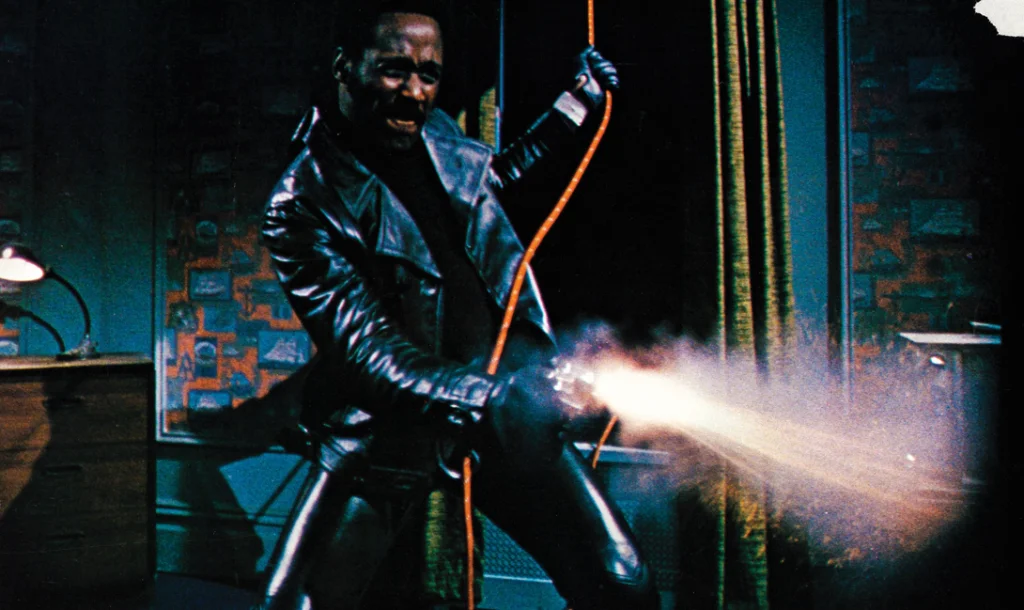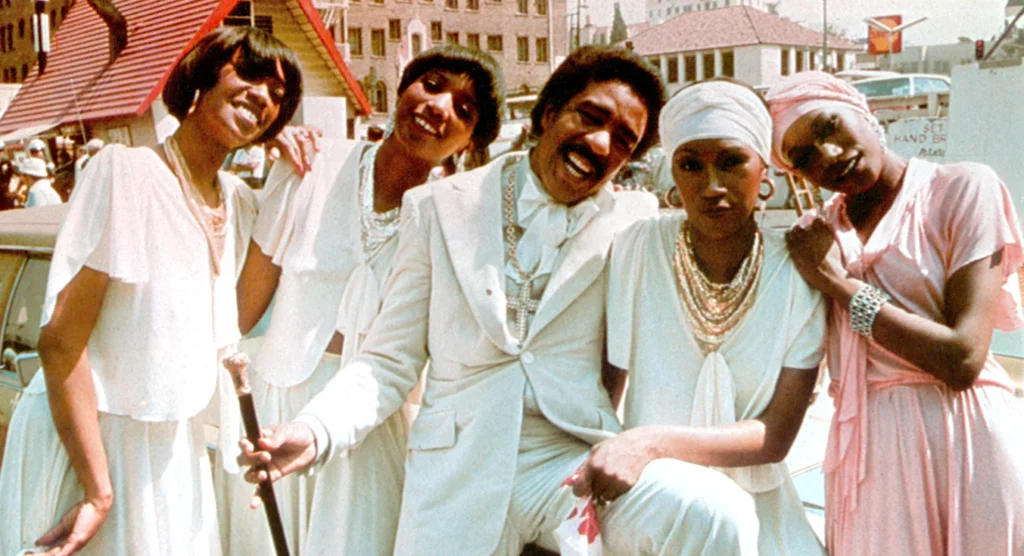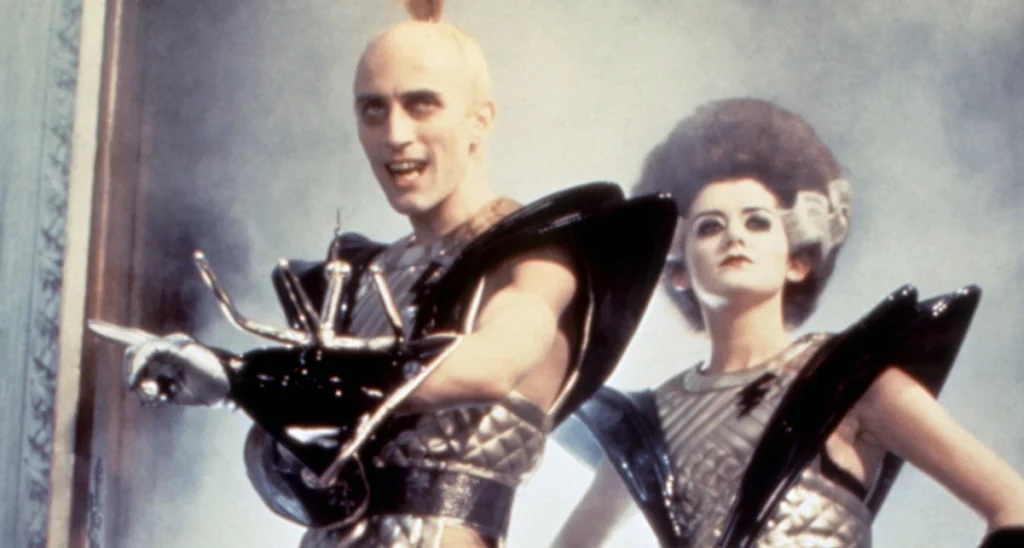The 1970s was a transformative decade for cinema, bringing us groundbreaking films across all genres. But sometimes, even when the storylines didn’t quite hit the mark, the music soared. These soundtracks didn’t just complement their films—they transcended them, becoming cultural phenomena that outlasted the movies themselves. Here’s our tribute to those ’70s film scores and song collections that deserve more recognition than the plots they accompanied.
1. Saturday Night Fever (1977)

While the story of Tony Manero’s disco escapism resonated with audiences, it’s the Bee Gees-dominated soundtrack that elevated this film to legendary status. The album spent an astonishing 24 weeks at number one on the Billboard charts, won a Grammy for Album of the Year, and sold over 40 million copies worldwide, making it one of the best-selling soundtracks of all time. “Stayin’ Alive,” “Night Fever,” and “How Deep Is Your Love” became disco anthems that defined an era, with Barry Gibb’s falsetto serving as the voice of the late ’70s cultural phenomenon. Far Out Magazine takes on the jamming task of ranking each glorious song on this award-winning soundtrack.
The soundtrack’s brilliance lies in how perfectly it captured the escapist fantasy of disco while adding surprising emotional depth. The Bee Gees wrote much of the music before seeing any footage, yet somehow created the perfect sonic landscape for both the glittering dance sequences and the grittier scenes of working-class Brooklyn life. While the film’s exploration of dance as escape from dead-end prospects has its merits, it’s telling that most people remember the white suit and dance moves set to that unforgettable music rather than the darker subplot elements or character arcs.
2. Superfly (1972)

Curtis Mayfield’s masterpiece for this blaxploitation film didn’t just enhance the movie—it offered a critical commentary on its content. The soundtrack album actually outgrossed the film, reaching the top spot on the Billboard Soul Albums chart while delivering funk-infused tracks that contrasted with the film’s glamorization of drug dealing. Mayfield’s socially conscious lyrics in songs like “Pusherman” and “Freddie’s Dead” brought depth and perspective that the movie itself sometimes lacked, creating what many critics consider one of the greatest soundtrack albums ever recorded. In case it wasn’t stuck in your head yet, Rolling Stone has a list of several facts the biggest fans should know.
Musically innovative, the soundtrack blended soul, funk, and jazz with orchestral elements and Mayfield’s distinct falsetto to create something utterly distinctive. While the film followed the exploits of cocaine dealer Youngblood Priest, Mayfield’s music offered a more nuanced take on the consequences of the drug trade and the harsh realities of urban life. The soundtrack has endured as a cultural touchstone and musical landmark, frequently appearing on “greatest albums” lists, while the film itself is remembered more as a genre example than for its narrative strengths.
3. The Harder They Come (1972)

This Jamaican crime film introduced much of the world to reggae music through its extraordinary soundtrack, which had far greater international impact than the movie itself. Jimmy Cliff’s starring role as Ivan Martin was overshadowed by his musical contributions, including the title track and “Many Rivers to Cross,” which helped popularize reggae globally alongside tracks from artists like Toots and the Maytals. The compilation effectively served as a “greatest hits” of early reggae, introducing international audiences to a musical form that would influence countless artists across multiple genres. IMDb has a rundown of all the names who helped make this soundtrack so groundbreaking.
While the film told the compelling story of a country boy turned outlaw in Kingston, its limited production values and regional focus initially restricted its audience appeal. The soundtrack, however, broke through cultural barriers, bringing Jamaican musical innovation to listeners worldwide and paving the way for Bob Marley’s subsequent international breakthrough. Music historians often cite this soundtrack as one of the most influential in introducing a regional musical style to global audiences, while the movie remains primarily appreciated by film buffs and reggae enthusiasts.
4. American Graffiti (1973)

George Lucas’s nostalgic look at early ’60s teenage life was revolutionary for its use of period-specific pop songs rather than a traditional score, featuring 41 classic tracks that essentially functioned as another character in the film. The double-album soundtrack became a cultural phenomenon in its own right, reigniting interest in 1950s and early 1960s rock and roll during the 1970s and pioneering the concept of the “oldies” radio format. Wolfman Jack’s iconic radio presence tied the soundtrack to the film’s narrative, creating a seamless blend of music and storytelling that influenced countless films that followed.
While the coming-of-age plot was well-crafted, it’s the musical backdrop of Chuck Berry, Buddy Holly, and The Beach Boys that remains etched in viewers’ memories. The soundtrack’s commercial success—reaching #10 on Billboard’s album charts and going triple platinum—demonstrated how curated period music could create both atmosphere and emotional resonance in film. The movie’s greatest legacy may be how it established the template for using authentic period music to establish time and place, influencing everything from “Dazed and Confused” to “Guardians of the Galaxy.”
5. Shaft (1971)

Isaac Hayes created a musical landmark with his soundtrack for this blaxploitation classic, winning an Academy Award for Best Original Song and helping to establish the sonic blueprint for an entire film genre. The iconic wah-wah guitar, punchy horn section, and Hayes’ deep, smooth vocals on the title track combined to create one of the most instantly recognizable theme songs in film history. Beyond the famous theme, the soundtrack featured sophisticated orchestral arrangements blended with funk rhythms, establishing Hayes as a groundbreaking composer as well as performer.
The film itself delivered a solid detective story with Richard Roundtree’s portrayal of the tough private eye becoming a cultural icon. However, it’s telling that when most people think of “Shaft,” they first hear that distinctive high-hat cymbal pattern and guitar intro in their minds, rather than recalling plot points from the film. The soundtrack album spent 60 weeks on the Billboard chart, peaking at #1, and introduced elements of soul and funk to film scoring that would influence cinema sound for decades to come.
6. The Wiz (1978)

Despite the star power of Diana Ross and Michael Jackson, this urban reimagining of “The Wizard of Oz” suffered from production issues and directorial choices that prevented it from reaching its full potential. The soundtrack, however, brilliantly combined Quincy Jones’s production expertise with songs by Charlie Smalls and others to create a soulful, disco-infused musical experience that outshone the film itself. Michael Jackson’s vulnerable performance of “Ease On Down the Road” with Diana Ross hinted at the superstar collaboration that would later create “Thriller,” while songs like “Home” and “A Brand New Day” showcased powerful vocal performances set against rich, sophisticated arrangements.
The soundtrack album’s blend of Broadway tradition with contemporary R&B and disco elements created something genuinely innovative for the time. While the film struggled with pacing issues and Sidney Lumet’s sometimes awkward translation of a stage musical to screen, the music retained all the emotional power and cultural significance of the original Broadway production. Music critics and fans have long recognized that the audio experience of “The Wiz” delivers the magic and heart that the film production sometimes missed.
7. Grease (1978)

This nostalgic look at 1950s high school life was a massive commercial success, but even its most devoted fans acknowledge the paper-thin plot serving mainly as a vehicle for the musical numbers. The soundtrack, however, became a cultural juggernaut, spending 12 weeks at #1 on the Billboard charts and yielding multiple hit singles including “You’re the One That I Want,” “Summer Nights,” and “Hopelessly Devoted to You.” The album brilliantly combined original songs written for the film with ’50s-style rockers to create a perfect throwback to the era while still feeling contemporary for 1970s audiences.
Olivia Newton-John and John Travolta’s vocal performances helped drive the soundtrack’s massive commercial success, with their duet “You’re the One That I Want” selling over 15 million copies worldwide. While the film’s portrayal of Rydell High’s social dynamics hasn’t aged particularly well, the infectious energy of the music continues to attract new generations of listeners. The soundtrack’s enduring popularity—it’s one of the best-selling albums of all time—demonstrates how it transcended the film’s simplistic plot to become a standalone musical achievement.
8. Suspiria (1977)

Dario Argento’s horror masterpiece is visually stunning, but its narrative coherence sometimes takes a backseat to style and atmosphere—elements powerfully enhanced by Progressive rock band Goblin’s extraordinary soundtrack. The main theme’s hypnotic, unsettling quality combines music box delicacy with thundering percussion and otherworldly whispers to create one of the most distinctive horror soundtracks ever recorded. The score doesn’t simply accompany the film’s famous murder set pieces; it actively participates in them, using sonic assaults to heighten the sensory overload of Argento’s technicolor bloodshed.
The soundtrack’s influence extended far beyond horror cinema, impacting progressive rock, electronic music, and eventually being sampled by numerous hip-hop artists. While the film is rightfully considered a stylistic triumph of Italian horror, many critics note that its narrative elements are subordinate to its visual and sonic components. Goblin’s music creates such a distinctive atmosphere that it’s impossible to separate the film’s effectiveness from its soundtrack—the auditory experience is fundamental to what makes “Suspiria” a cult classic.
9. Car Wash (1976)

This ensemble comedy about a day in the life of a Los Angeles car wash had its charms but was ultimately a modest success. Its soundtrack, however, was a disco and funk masterpiece that yielded multiple hit singles and won a Grammy for Best Score Soundtrack. Rose Royce, a relatively unknown group at the time, created infectious tracks like the title song “Car Wash” and the ballad “I Wanna Get Next to You” that dominated radio play far beyond the film’s theatrical run. Norman Whitfield’s production brought together funk, soul, and early disco elements to create a soundtrack that perfectly captured mid-70s Black music.
The album spent two weeks at #1 on the Billboard Soul LPs chart and reached #5 on the Pop Albums chart, significantly outperforming the film’s box office success. While the movie offered an interesting slice-of-life portrayal with some social commentary, it’s the music that has endured as its primary cultural contribution. The title track remains a staple of ’70s music compilations and continues to receive regular radio play nearly five decades later—something that can’t be said for regular screenings of the film.
10. Dirty Harry (1971)

While Clint Eastwood’s portrayal of maverick cop Harry Callahan made for compelling viewing, it was Lalo Schifrin’s innovative jazz-infused score that gave the film its pulsating heart. The Argentine composer created a musical landscape that perfectly captured both the gritty streets of San Francisco and the psychological cat-and-mouse game between Callahan and the Scorpio killer. Schifrin’s use of unusual time signatures, particularly 7/4 time in the main theme, created a sense of unease and unpredictability that enhanced the film’s tension far beyond what the dialogue and visuals could accomplish alone.
The soundtrack’s blend of orchestral elements with jazz and funk influences established a new sound for urban crime films that would be imitated throughout the decade. Although the film itself was commercially successful and spawned multiple sequels, music historians and film composers regularly cite Schifrin’s score as the element that elevated “Dirty Harry” from a standard police thriller to something more artistically significant. The soundtrack album has been reissued multiple times and is considered a classic of film composition, appreciated by jazz aficionados and soundtrack collectors alike.
11. Flash Gordon (1980)

This campy sci-fi adventure (technically released in December 1980, making it just barely a ’70s film) suffered from wooden acting and an over-the-top approach that couldn’t decide whether it was parody or straight adventure. Queen’s soundtrack, however, was an undisputed triumph that represented one of the band’s most ambitious projects. Combining rock operatics with synthesizer-driven instrumental pieces, Freddie Mercury and company created a sonic space opera that gave the film whatever gravitas it managed to achieve. The anthemic “Flash” single reached #10 on the UK charts and has remained a staple of the band’s catalog, while Brian May’s instrumental work revealed new dimensions to Queen’s musical capabilities.
The soundtrack album showcased Queen’s versatility, ranging from hard rock to orchestral pieces, all unified by their distinctive sound. While the film has achieved a certain cult status over the years, it’s telling that many Queen fans who’ve never seen the movie still know and appreciate the soundtrack. Music critics have noted how the soundtrack’s quality and seriousness often seems at odds with the film’s campy execution, creating an interesting artistic tension where the music seems to belong to a better, more fully realized version of the movie.
12. The Rocky Horror Picture Show (1975)

This midnight movie staple has endured primarily because of its incredible soundtrack rather than its deliberately absurd plot. Richard O’Brien’s songs combine ’50s rock and roll influences with theatrical showstoppers to create a unique musical landscape that’s both parody and loving tribute to B-movies and sexual liberation. “Time Warp,” “Sweet Transvestite,” and “Touch-a, Touch-a, Touch-a, Touch Me” have transcended the film to become cultural touchstones, known even to people who’ve never attended a midnight screening with toast and squirt guns.
The soundtrack album has sold over 2 million copies and continues to find new audiences decades after its release. While the film’s cult following revolves around the participatory midnight screening experience, it’s the catchy, transgressive songs that form the backbone of its enduring appeal. The music’s quality is evidenced by how successfully “Rocky Horror” has transferred to the stage around the world, where the focus shifts even more toward the songs rather than the deliberately schlocky plot elements.
From disco fever to prog rock horror, these soundtracks didn’t just complement their films—they outshined them, creating musical legacies that continue to influence artists and entertain listeners decades later. While some of these movies have stood the test of time better than others, their soundtracks remain undisputed classics of 1970s musical innovation. In many ways, these albums represent the perfect marriage of the decade’s cinematic ambitions with its extraordinary musical creativity, even when the films themselves didn’t quite hit the mark.


